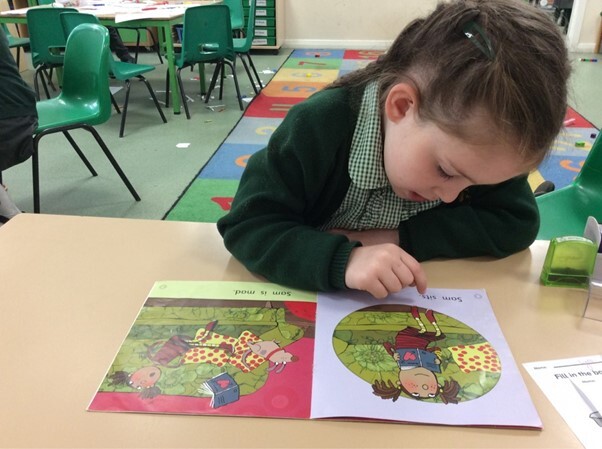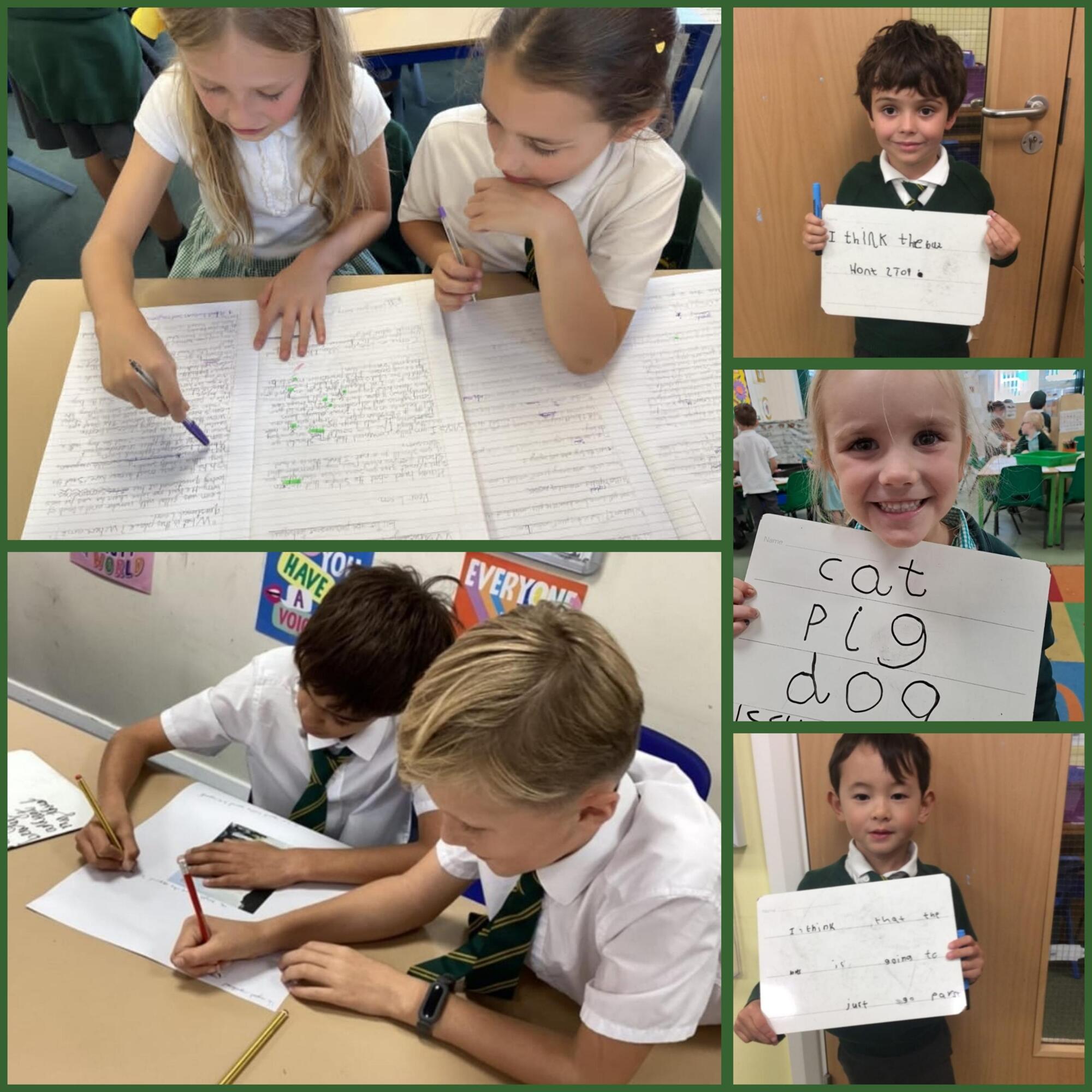- Home
- About Us
- Curriculum Subjects
- English
English
BackAt Bickley, it is our intention that all children should develop a love of reading, writing and discussion, which equips them to be lifelong learners.
Reading
We hold the firm conviction that reading stands as the most paramount life skill we can impart to our pupils. We firmly believe that by mastering the art of reading, fostering an appreciation for it, and nurturing a love for books, we empower our pupils to excel across all areas of the curriculum, thereby enhancing their potential for success in life.
The teaching of reading is a cornerstone of a child's comprehension and appreciation of the world that surrounds them. It serves as a gateway, enabling our pupils to explore beyond their immediate experiences, engage with diverse cultures, and develop the vocabulary necessary for effective self-expression. Our reading curriculum is meticulously designed to instil a lifelong passion for reading, cultivating the habits that will mould our pupils into discerning and avid readers who immerse themselves in books on a regular basis.
Why should parents read to their child?

Phonics
Initially, we focus on equipping our pupils with strong phonics skills and the ability to apply them in decoding words, thus achieving fluency in reading. We employ the comprehensive systematic synthetic phonics program, "ELS" to achieve this goal.
Vocabulary
Vocabulary development is a central tenet not only within English but across the entire curriculum. We understand that a rich vocabulary greatly enhances a reader's ability to comprehend texts. Our pupils naturally expand their vocabulary through reading and listening to others, while also benefiting from direct vocabulary instruction.
Reading Comprehension
As our pupils progress, they are guided in developing the skills necessary to comprehend what they read, interpret texts, and extract information. Comprehension is taught through skilled questioning and through using a range of schemes that are designed to cover the different aspects of the skills required.
Reading for pleasure
Beyond these essential skills, our primary aim is to ignite in our pupils a genuine desire and passion for reading. At the heart of our curriculum lies "Reading for Pleasure," a key driver of educational outcomes for all our pupils. We are deeply committed to promoting a love for reading and strive to offer pupils opportunities to read not only in English lessons but also throughout the broader curriculum. Each class visits the school library once a week to change their books, and each class has a book area with books that the children take home. We also have high quality and engaging class texts which are read to the children and from which some of the class work is planned. We understand that while academic achievement is vital, the benefits of reading for pleasure extend far beyond, influencing every facet of an individual's lifelong journey.
Research demonstrates that reading for pleasure yields numerous advantages, including fostering understanding, aiding learning, providing comfort and solace, building confidence, enabling self-expression, enhancing self-understanding, nurturing empathy, improving interpersonal relationships, and promoting overall well-being. It is imperative that pupils are motivated to read regularly at home, as increased reading opportunities lead to improved fluency and stamina, ultimately heightening their enjoyment of reading. The relationship between a pupil's motivation to read and reading for pleasure is reciprocal. Moreover, we recognise that reading for pleasure not only benefits reading outcomes but also enhances broader enjoyment of learning and mental well-being.
Our ultimate aspiration is that all Bickley pupils will:
- Develop a lifelong love for reading and books.
- Read with accuracy, fluency, and comprehension.
- Apply their knowledge of structured synthetic phonics to decode unfamiliar words swiftly and accurately.
- Read with expression, clarity, and confidence.
- Cultivate a strong linguistic understanding of vocabulary and grammar.
- Engage with and respond to a diverse array of text types.
- Develop a heightened sense of emotional intelligence and empathy.
- Read fluently and confidently in any subject during their upcoming secondary education.
Writing
At Bickley Primary School, we hold the firm belief that writing is an essential life skill, with applications both inside and outside of the realm of education. Our primary objective is to equip children with the fundamental, transferable writing skills that will serve as a solid foundation year after year, ensuring they are ready for the challenges of secondary school and beyond. Our approach to teaching writing is infused with excitement, where we employ a variety of engaging methods and contexts to captivate the imaginations of our young learners. We use the ‘Power of reading’ to promote a love of literature. It focuses on using high-quality children’s texts and provides creative teaching approaches to engage children in the literacy curriculum. This supports teachers to nurture a whole school's love of reading and writing. The project offers multi-layered professional development, drawing on the Centre for Literacy in Primary Education's (CLPE's) highly regarded classroom-based research and experience of working with teachers. The Power of Reading project combines the use of outstanding books for teachers and children with an approach to teaching an English curriculum that is creative, engaging and develops a love of literacy.
Our goal extends to enabling children to confidently spell new words, achieved through the effective application of spelling patterns and rules they acquire during their primary school journey. KS1 follow the ELS spelling scheme and KS2 use Pathways to Spell.
The explicit teaching of handwriting, spelling, and grammar forms an integral part of our approach to ensure that children grasp the conventions of effective writing. We firmly believe that every child should take pride in the presentation of their work, fostering a sense of ownership and responsibility.
In our writing curriculum, we prioritise oracy to enrich vocabulary and enhance comprehension of more complex texts featured across our curriculum. Through engaging in discussions, asking questions, and diving into diverse texts, our pupils sharpen their understanding and acquire the tools essential for success in their writing endeavours.

Oracy
Oracy, the development of effective spoken communication skills, holds paramount importance at Bickley. It serves as the cornerstone for various facets of a child's growth and development. Oracy skills are the gateway to literacy; by honing children’s ability to express themselves verbally, pupils lay a robust foundation for reading and writing, facilitating their academic journey. It nurtures social interaction, enabling pupils to articulate their thoughts, collaborate with peers, and resolve conflicts, fostering empathy and an appreciation of diverse viewpoints and cultures. Furthermore, oracy promotes critical thinking. Through discussions and debates, pupils learn to analyse information, express their ideas, and evaluate different perspectives - vital for problem-solving and decision-making. Oracy also instils confidence: by speaking in front of peers and actively participating in class discussions, pupils gain self-assurance and leadership skills, which prove invaluable in their personal and academic lives. Additionally, effective oral communication prepares pupils for future careers, as almost every profession demands the ability to communicate ideas clearly and collaborate with colleagues. It nurtures public speaking skills, essential for presentations, interviews, and leadership roles. Our dedicated focus on oracy at Bickley equips children with the skills they require for success in academics, social interactions, and future endeavours, ensuring they evolve into informed and engaged global citizens.
English Progression OverviewEnglish Vocab
EYFS and Key Stage 1 suggested reading list
Key Stage 2 suggested reading list



